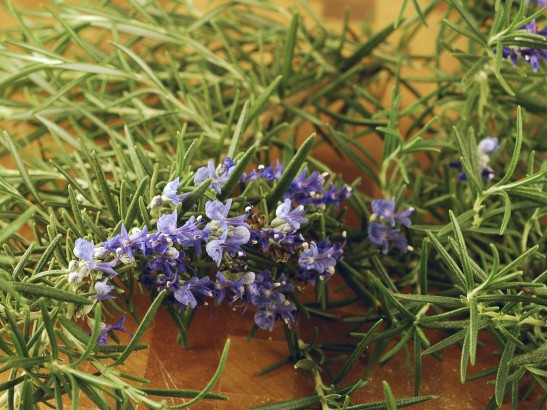
Rosemary (Rosmarinus officinalis) has long been called “the herb of remembrance.”
Its evergreen leaves, fresh scent, and remarkable healing powers have been celebrated since ancient times, not only for flavoring meals but also for strengthening the mind and restoring energy.
Originally found along the Mediterranean coast, rosemary has traveled the world, from Greek temples and Roman kitchens to modern homes where it’s still loved as both food and medicine.
A Fragrant History
In Greece, students used to tuck sprigs of rosemary into their hair before exams to help with focus and memory. Lovers exchanged it as a symbol of faithfulness, and families burned rosemary in their homes to protect against illness and negative energy.
The name Rosmarinus means “dew of the sea.” With its fine, needle-like leaves and oceanic fragrance, rosemary was believed to bring mental clarity and spiritual purification.
How Women Over 40 Can Benefit from Rosemary
As we grow older, our body’s natural rhythm changes, energy levels, hormones, and even concentration can fluctuate. Rosemary helps reconnect us with that sense of vitality and focus.
This aromatic herb is packed with antioxidants and rosmarinic acid, which protect cells from damage and may slow down age-related decline. It’s also rich in minerals like calcium, magnesium, potassium, and phosphorus — all essential for bone, nerve, and heart health.
Here’s how rosemary can support women over 40:
🌿 Improves Circulation & Memory
By increasing blood flow to the brain, rosemary can help sharpen concentration and memory — especially when feeling foggy or fatigued.
🌿 Boosts Digestion
Rosemary tea helps relieve bloating, gas, and indigestion, and gently supports liver function.
🌿 Eases Stiff Joints and Muscle Pain
When used in baths or massage oils, rosemary reduces inflammation and improves circulation in sore or tired muscles.
🌿 Supports Emotional Balance
Its scent has a mild, uplifting effect — calming tired nerves while promoting a clear and focused mind.
🌿 Promotes Healthy Hair & Scalp
A rosemary rinse or oil massage helps strengthen hair roots, improve shine, and reduce dandruff.
Simple Rosemary Rituals
🌿 For Mental Clarity
Place one drop of rosemary essential oil on a tissue and inhale deeply before starting your workday. The scent instantly refreshes and awakens the mind.
🌿 For Hair & Scalp
Steep a few fresh rosemary sprigs in hot water, let cool, and use as a final rinse after shampooing. For extra nourishment, mix 2–3 drops of rosemary essential oil with a tablespoon of jojoba oil and massage into the scalp once a week.
🌿 For Sore Muscles or Joints
Add 5 drops of rosemary oil (and optionally sage, thyme, or marjoram) to a warm bath. Soak for 15–20 minutes to soothe stiffness and promote relaxation.
🌿 For Digestion & Bloating
Sip warm rosemary tea after a heavy meal to stimulate digestion and relieve discomfort.
🌿 For Headache Relief
Rub one drop of diluted rosemary oil (mixed with carrier oil) on the back of your neck or temples for gentle relief.
A Note of Care
Rosemary is a stimulating herb — it increases circulation and can raise blood pressure. If you have hypertension, it’s best to avoid large internal doses or concentrated tinctures. For external use, it’s generally safe when diluted properly.
Good to Know
Rosemary’s benefits aren’t just physical — its invigorating scent is also linked to memory, focus, and emotional resilience.
“Where rosemary grows, the spirit is strong.”
Adding this herb to your daily routine, as a tea, oil, or simply a sprig by your window — brings a sense of brightness and renewal, especially during times of change or fatigue.
🪴 Recommended Rosemary Essentials
Here are a few natural ways to enjoy rosemary’s benefits at home:
🌿 For Hair & Beauty
-
Rosemary Essential Oil — for scalp massage and aromatherapy
-
Rosemary Hair Growth Oil or Scalp Serum — strengthens and nourishes roots
-
Organic Jojoba Oil (Carrier Oil) — perfect for blending essential oils
🍃 For Kitchen & Tea
-
Glass Tea Infuser Bottle or Teapot — for easy herbal brews
💧 For Bath & Relaxation
-
Ultrasonic Diffuser for Essential Oils — fills your space with focus and freshness
(As an Amazon Associate, Herbs Natura may earn from qualifying purchases — at no extra cost to you.)
Whether you use it in your kitchen, your bath, or simply as a scent to start your morning, rosemary brings energy and remembrance, to the mind, but to the spirit.


